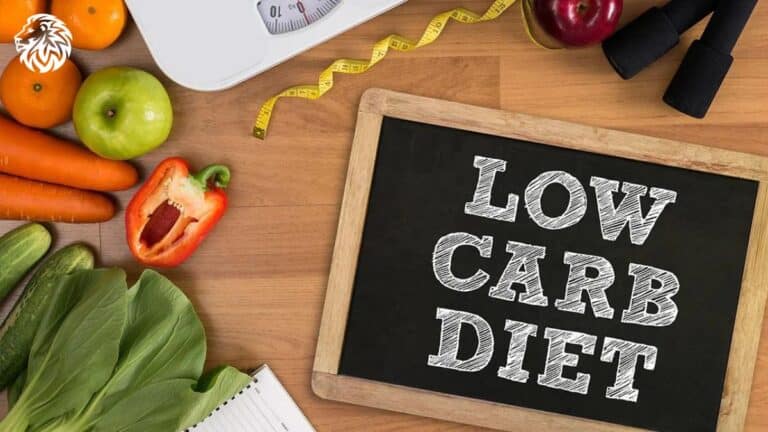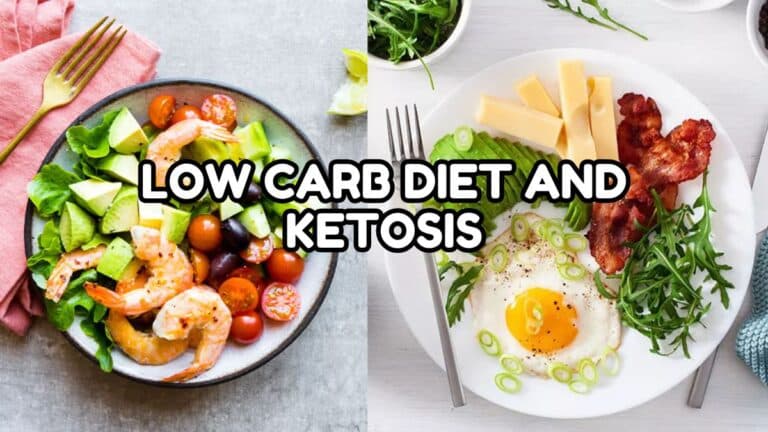In our relentless pursuit of weight loss, a plethora of diets have emerged, and low-carb diets, in particular, have gained considerable traction. So, can these diets truly help us shed those pesky pounds? In this all-encompassing guide, we’ll dive headfirst into the scientific underpinnings of low-carb diets, examining their benefits and drawbacks, and equipping you with practical advice to determine whether this dietary strategy is the right fit. Join us on this captivating voyage as we dissect low-carb diets and their efficacy for weight loss.
Key Takeaways
- Low-carb diets, including ketogenic, Atkins, and paleo, can facilitate weight loss by inducing ketosis, reducing appetite, enhancing insulin sensitivity, and promoting fat burning.
- Appetite control, improved insulin sensitivity, and enhanced fat burning are notable benefits of low-carb diets for weight loss, particularly for individuals with insulin resistance or type 2 diabetes.
- Risks and considerations of low-carb diets include potential nutrient deficiencies, short-term side effects like “keto flu,” and challenges with long-term adherence due to dietary restrictions.
- Before adopting a low-carb diet, consult a healthcare professional or registered dietitian to ensure the diet meets your nutritional needs and aligns with your lifestyle, preferences, and overall health goals.
The Science Behind Low-Carb Diets
What is a Low-Carb Diet?
A low-carb diet, a nutritional approach favoring reduced carbohydrate consumption and increased protein, healthy fat, and non-starchy vegetable intake, aims to shift the body’s primary energy source from carbs to fats. This transition ushers the body into a metabolic state called ketosis, during which it predominantly burns fat for fuel. Several low-carb diet variations exist, such as the ketogenic, Atkins, and paleo diets, each with distinct macronutrient proportions and food restrictions.
How Low-Carb Diets Facilitate Weight Loss
Low-carb diets drive weight loss through a web of interconnected mechanisms, detailed below:
- Inducing Ketosis: Drastically cutting carbs depletes the body’s glucose reserves, prompting the liver to convert stored fat into ketones, an alternative fuel source. This metabolic shift, dubbed ketosis, amplifies fat burning and bolsters weight loss.
- Appetite Reduction: Protein and fat, more satiating than carbs, make up the lion’s share of low-carb diets. Consequently, low-carb dieters often experience diminished hunger, simplifying calorie deficit maintenance and weight loss.
- Enhanced Insulin Sensitivity: Lowering carb intake can boost insulin sensitivity by tempering blood sugar spikes. This increased efficiency in glucose utilization can expedite weight loss, especially for those battling insulin resistance or type 2 diabetes.
- Decreased Water Weight: Initially, low-carb diets may trigger rapid water weight loss as glycogen stores are emptied, and the body sheds surplus water. While not fat loss per se, this phenomenon can invigorate dieters in the early stages of their journey.
By intertwining these factors, low-carb diets create a conducive environment for weight loss, appealing to those striving to shed extra weight. However, it’s crucial to note that individual reactions to low-carb diets can differ, and a triumphant weight loss plan should be tailored to each person’s unique needs and preferences.
Benefits of Low-Carb Diets for Weight Loss

Appetite Control
Low-carb diets’ knack for appetite regulation is undeniably alluring. Prioritizing protein and fat intake makes these diets more filling than carb-laden counterparts. This enhanced satiety facilitates natural calorie reduction, streamlining calorie deficit maintenance and weight loss. Moreover, by stabilizing blood sugar levels, low-carb diets may stave off cravings and ravenous hunger commonly linked to blood sugar fluctuations.
Improved Insulin Sensitivity
Low-carb diets can significantly bolster insulin sensitivity. By curtailing carb intake, these diets avert blood sugar spikes, enabling insulin to operate more effectively. Heightened insulin sensitivity not only fosters superior blood sugar control but also augments the body’s capacity to burn stored fat for energy. This can be particularly advantageous for individuals grappling with insulin resistance, prediabetes, or type 2 diabetes, as it may facilitate superior glycemic control and heightened weight loss potential.
Enhanced Fat Burning
Low-carb diets excel in promoting fat burning. By inducing ketosis, these diets coax the body into utilizing fat as its primary fuel source, rather than carbohydrates. This metabolic reorientation can lead to escalated fat loss, especially when paired with a calorie deficit. Furthermore, the amplified fat burning may also contribute to the preservation of lean muscle mass during weight loss, which is pivotal for sustaining a healthy metabolism and thwarting weight regain in the long run.
Risks and Drawbacks of Low-Carb Diets

- Nutrient Deficiency: Restricting carbohydrates may lead to inadequate consumption of essential nutrients, including fiber, vitamins, and minerals.
- Initial Side Effects: Some individuals may experience side effects during the initial phase of a low-carb diet, such as headaches, fatigue, and irritability, commonly referred to as the “keto flu.”
- Sustainability: Strict low-carb diets can be challenging to maintain in the long term, potentially leading to weight regain.
Practical Tips for Implementing a Low-Carb Diet
- Consult a Medical Professional: Before embarking on a low-carb diet, consult a healthcare professional to ensure it’s suitable for your individual needs and to minimize potential risks.
- Gradual Transition: Transitioning to a low-carb diet gradually can help mitigate potential side effects and increase the likelihood of long-term success.
- Focus on Nutrient-Dense Foods: Prioritize whole, unprocessed foods rich in nutrients, such as lean proteins, healthy fats, and non-starchy vegetables, to ensure a well-balanced diet.
Conclusion
Low-carb diets can help you lose weight if they are used properly. You can determine if a low-carb diet is right for you by comprehending the science behind these diets, as well as their advantages and risks, and by putting practical strategies into practice. To ensure a safe and successful weight loss journey, always consult with a healthcare professional before making significant dietary changes.
FAQs
Can everyone benefit from a low-carb diet?
While many people experience weight loss success with low-carb diets, individual responses may vary. Factors such as age, genetics, activity levels, and pre-existing medical conditions can influence the effectiveness of a low-carb diet.
Are low-carb diets safe for long-term weight maintenance?
The long-term safety and effectiveness of low-carb diets are still being studied. While some individuals can maintain a low-carb lifestyle for an extended period, others may find it challenging to adhere to the strict carbohydrate restrictions.
Can I eat fruits and vegetables while on a low-carb diet?
Yes, you can eat fruits and vegetables on a low-carb diet, but you must choose non-starchy, nutrient-dense options. Leafy greens, cauliflower, broccoli, berries, and avocados are some examples.
Can a low-carb diet help me perform better in sports?
Some athletes, particularly those involved in endurance sports, may benefit from a low-carb, high-fat diet. However, individual responses to such a diet may differ, and some athletes may require a higher carbohydrate intake to optimize performance.
Are there any weight-loss alternatives to low-carb diets?
Calorie restriction, intermittent fasting, and the Mediterranean diet are some of the alternative weight-loss diets. The most effective diet is one that is tailored to your specific preferences, lifestyle, and health requirements.
References:
- Volek, J. S., & Phinney, S. D. (2011). The Art and Science of Low Carbohydrate Living. Beyond Obesity LLC.
- Hallberg, S. J., McKenzie, A. L., Williams, P. T., Bhanpuri, N. H., Peters, A. L., Campbell, W. W., … Volek, J. S. (2018). Effectiveness and Safety of a Novel Care Model for the Management of Type 2 Diabetes at 1 Year: An Open-Label, Non-Randomized, Controlled Study. Diabetes Therapy, 9(2), 583–612. https://doi.org/10.1007/s13300-018-0373-9
- Gardner, C. D., Trepanowski, J. F., Del Gobbo, L. C., Hauser, M. E., Rigdon, J., Ioannidis, J. P. A., … King, A. C. (2018). Effect of Low-Fat vs Low-Carbohydrate Diet on 12-Month Weight Loss in Overweight Adults and the Association With Genotype Pattern or Insulin Secretion: The DIETFITS Randomized Clinical Trial. JAMA, 319(7), 667–679. https://doi.org/10.1001/jama.2018.0245







